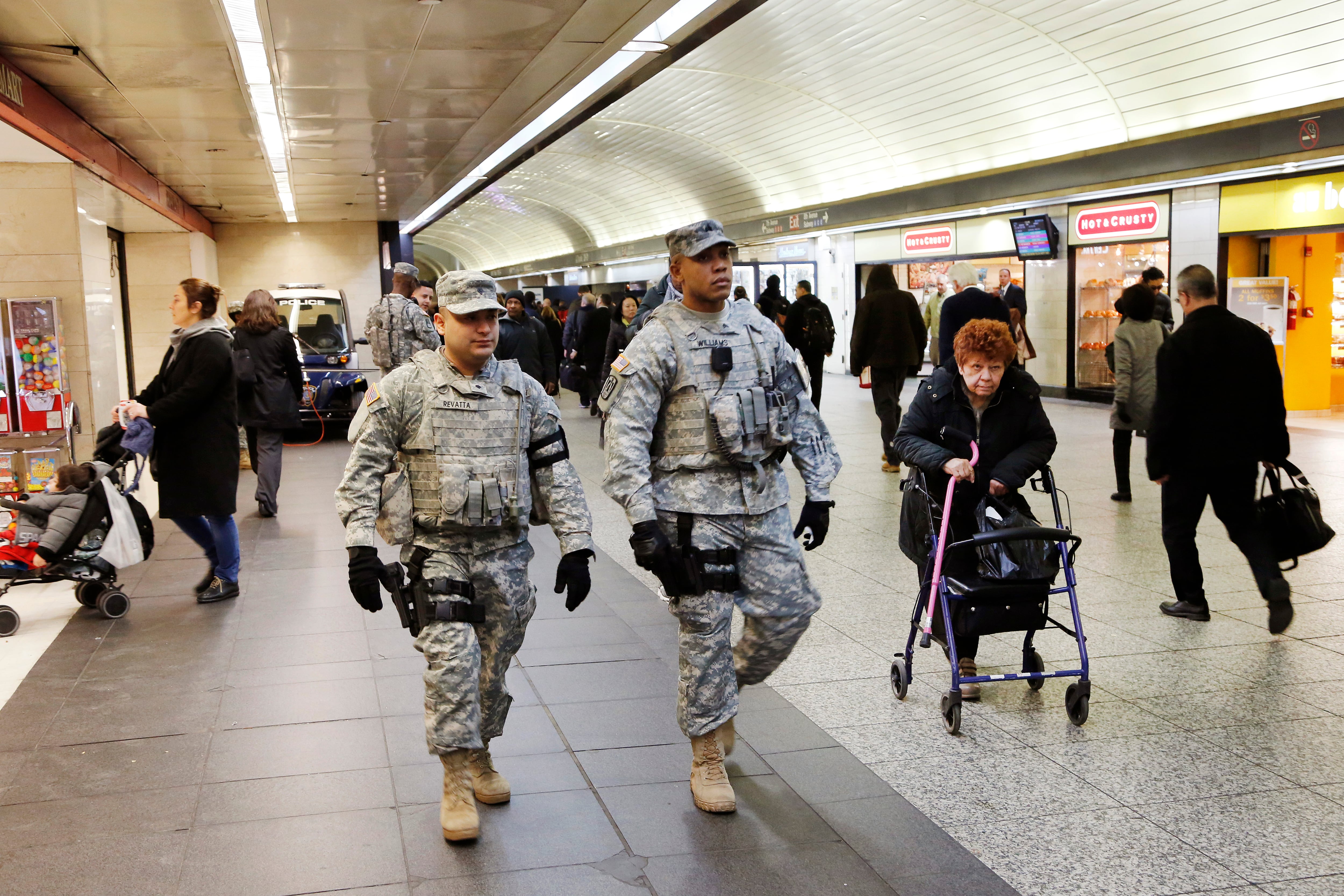An Air Force officer and several of his family members were injured during Tuesday's bombings in Brussels, and military officials in Europe ordered most of the 60,000-plus troops stationed throughout the continent to avoid any travel to Belgium's capital, defense officials said.
Officials at U.S. European Command backed away from its statement early Tuesday indicating that all troops in the region were accounted for.
The Air Force said in a statement Tuesday afternoon that the airman was assigned to Joint Force Command Brunssum in the Netherlands.
"The airman's family was also present and has sustained various injuries. Due to privacy concerns, we are not releasing the status of their injuries," according to the statement.
The Associated Press reported that the airman was a lieutenant colonel, citing anonymous defense officials.
"Our thoughts and prayers are with our Air Force family, and with the hundreds of others affected by these tragic events," said Gen. Mark Welsh, the Air Force chief of staff.
The Islamic State group claimed responsibility for the attacks, which have left more than 30 people dead and dozens more injured.
The report of American injuries first emerged during a hearing Tuesday morning on Capitol Hill Tuesday late morning.
"SUpdate on Brussels since you have been here – six American citizens injured, including five family members of the military," Rep. Rodney Frelinghuysen, chairman of the House defense appropriations subcommittee, announced during a hearing on the military's health budget. "It’s horrendous. I’m sure we are meeting their needs," said Rep. Rodney Frelinghuysen, chairman of the House defense appropriations subcommittee, during a hearing on the military health budget."
Brussels is home to NATO's headquarters. Thousands of American military personnel and their families are stationed there.
Collins told Military Times that U.S. officials in Europe are "closely monitoring the situation in Brussels" as they continue to seek "100 percent accountability" for all American personnel in the region.
On Tuesday EUCOM imposed travel restrictions on essentially all troops in Europe, ordering them to stay out of Brussels.
"As a precautionary measure to keep personnel and families safe in light of the today's attacks, U.S. European Command has implemented travel restrictions to Brussels, Belgium. Specifically, unofficial travel to Brussels (leave, liberty, and special pass) is prohibited until further notice. Those on official travel or emergency leave to Brussels will also require the approval" from senior leaders, according to a EUCOM statment issued Tuesday afternoon.
"This EUCOM policy applies to military personnel, DOD civilian employees, contractors, and command-sponsored dependents and family members. These restrictions do not apply to military personnel assigned to diplomatic posts in Belgium," according to the statement.
The commander of U.S. Marine Corps Forces Europe and Africa issued an order Tuesday restricting travel to Belgium for all Marines in the command, said Maj. Richard Ulsh, a Marine spokesman in Germany.
U.S. Army Europe urged "all community members in Brussels" to "avoid using public transportation until further notice," according to the command's Facebook page.
The U.S. embassy in Brussels issued a statement urging American citizens there "to remain vigilant and aware of the local security situation; to follow local authority instructions and to monitor local media for further developments."
In the United States, state officials activated the New York National Guard's quick reaction force to provide additional security at airports.

Members of the New York National Guard patrol Penn Station on Tuesday in New York. Authorities increased security throughout New York City following explosions at the airport and subway system in Brussels.
Photo Credit: Mark Lennihan/AP
At least 31 people were killed and dozens wounded in Brussels Tuesday as bomb blasts struck the airport and one of the city's metro stations. The European capital was locked down amid heightened security threats.
The two airport blasts, at least one of which was blamed on a suicide bomber, left behind a chaotic scene of splattered blood in the departure lounge as windows were blown out, ceilings collapsed and travelers streamed out of the smoky building.
About an hour later, another bomb exploded on a rush-hour subway train near the European Union headquarters. Terrified passengers had to evacuate through darkened tunnels to safety.
The attacks came just days after Belgian authorities arrested a key suspect in the terrorist attacks on Paris in November.
Andrew Tilghman is the executive editor for Military Times. He is a former Military Times Pentagon reporter and served as a Middle East correspondent for the Stars and Stripes. Before covering the military, he worked as a reporter for the Houston Chronicle in Texas, the Albany Times Union in New York and The Associated Press in Milwaukee.




